MercoPress. South Atlantic News Agency
Tag: Evo Morales
-
Friday, July 9th 2021 - 08:07 UTC
Former Argentine President Macri behind overthrowing of Evo Morales in Bolivia, document shows
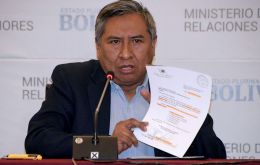
The Government of Bolivia Thursday disclosed documentation that would prove Argentina was behind the revolt that ended up in the toppling of former President Evo Morales.
-
Tuesday, June 15th 2021 - 07:56 UTC
Bolivia's ex acting president Jeanine Añez denounces she's a “political prisoner”
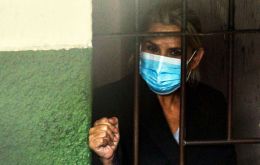
Bolivia's former acting president Jeanine Añez claimed she was a “political prisoner” in remarks on Twitter on Sunday. Añez has been arrested for over three months following coup allegations by her predecessor and rival Evo Morales.
-
Saturday, June 5th 2021 - 08:21 UTC
Mexico blasts OAS Secretary General Almagro, “one of the worst in history”
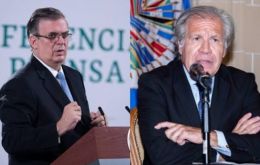
Mexico's foreign minister on Friday criticized the work of the head of the Organization of American States, Uruguayan born Luis Almagro, adding to its earlier rebuke that the group should not intervene in Bolivia's internal affairs.
-
Tuesday, May 4th 2021 - 09:10 UTC
Bolivia, Mexico agree to lift mutual visa requirement for short stays
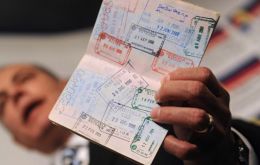
The governments of Bolivia and Mexico Monday announced they had agreed to lift the mutual visa requirement for citizens of either country wishing to travel to the other for stays of up to 180 days.
-
Tuesday, April 13th 2021 - 08:56 UTC
Major setback for Evo's party: none of its candidates win governors' elections in Bolivia

As the results of Sunday's departmental elections in Bolivia were becoming known Monday, former President Evo Morales' Movimiento al Socialismo (MAS) recorded one defeat after another.
-
Wednesday, March 17th 2021 - 09:09 UTC
Bolsonaro concerned with Bolivian ex-president Añez arrest and the overall situation
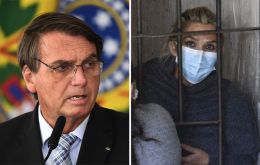
Brazilian President Jair Bolsonaro said on Tuesday that the arrest of former interim Bolivian President Jeanine Áñez over the weekend seemed unreasonable, adding he sees the situation in Bolivia as a cause for concern.
-
Monday, March 15th 2021 - 09:55 UTC
Arrest of former Bolivian interim president, escalates hostilities in the country

Bolivia's former interim President Jeanine Añez landed behind bars in La Paz after the new government arrested her on claims she participated in a 2019 coup to seize power. Supporters warned her arrest could lead to civil unrest in certain areas of Bolivia and argued there was no legality in the arrest and charges, but rather a political vendetta.
-
Saturday, March 13th 2021 - 09:52 UTC
Bolivian former interim president and cabinet members face charges of an alleged coup
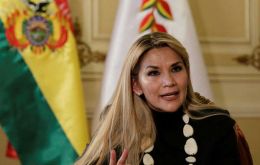
Former Bolivian interim president Jeanine Anez said on Friday that she and former Cabinet members faced arrest over an alleged coup. In a tweet, she said, “The political persecution has begun.” Prosecutors accused them of terrorism and sedition related to the ouster of long-time leader Evo Morales.
-
Thursday, November 12th 2020 - 09:50 UTC
Argentine president and several ministers under preventive isolation after an official tested Covid-19 positive
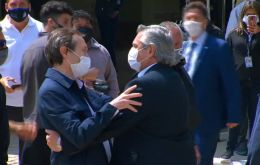
The president of Argentina, Alberto Fernández, and several of his ministers began preventative isolation after coming in close contact with an official infected with coronavirus, the government said in a statement late on Wednesday.
-
Monday, November 9th 2020 - 09:31 UTC
Bolivian president takes office promising to rebuild the country in unity and peace
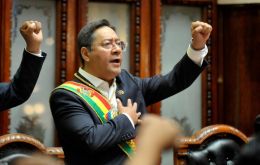
Luis Arce was sworn in as Bolivia’s new president on Sunday, bringing to a close a turbulent period characterized by political and social turmoil after former president Evo Morales left the government in November following a disputed election.
